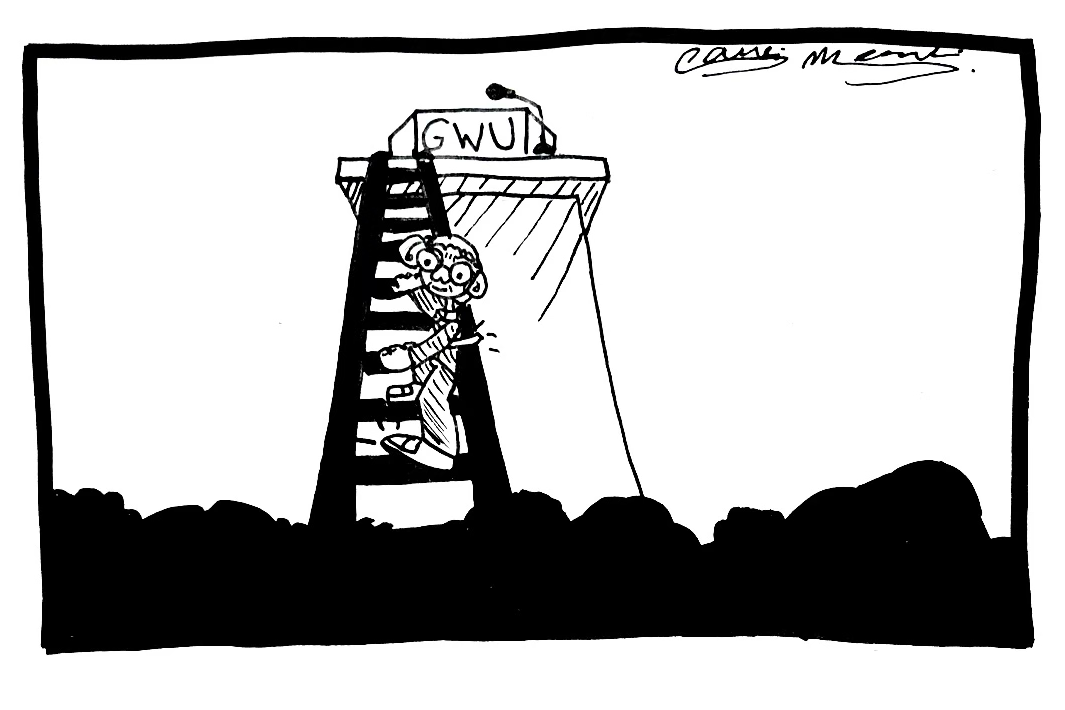Steven Stanton is a senior majoring in political science.
Imagine that it is a Sunday afternoon in the peak of midterm season. You’ve walked up and down each floor of Gelman Library, scanning each chair that is already taken. You expand your horizons and travel across H Street to the Marvin Center. There, right outside Panera Bread, you see it. An open seat, a place where you can peacefully get your work done. You take out your laptop and begin what will likely become a marathon of studying.
Then you hear it. Some student has found Marvin’s public piano. “No, no, no,” you think. You just started working. You just found this spot. But now you realize why that seat was left empty.
This is a story I have heard – and experienced – too many times. The tale of a student who wants nothing more than a peaceful place to study only for Marvin’s public piano to burst the small bubble of solace.
Public pianos are, in general, a nuisance. There is nothing particularly soothing about the sound of a poorly played piano, but administrators chose to place a piano in one of the spaces where students can study.
I do not blame the University. There has been increased emphasis on improving the student experience in the last two years, and the public piano was surely the half-baked idea of some Center for Student Engagement administrator who thought it would increase the center’s sense of community.
But when a tune starts to emerge from the piano, you can almost hear the collective groan of the students who are just trying to do work. You can see the groups of students working on a project together stop mid-sentence and hold their heads in their hands as they wait for the sound to stop. This is all because some student was given the power to distract them by the school administration.
This is not to say the presence of music is in and of itself a distraction to any working student. Many students find success working in the District House basement even though the radio is played through the overhead speakers. But District’s radio is played at a volume low enough to tune out and is fairly constant. The Marvin Center’s public piano is neither of these things. It plays too loud for earphones to block out and is incredibly unpredictable because someone could start playing at any time.
Marvin’s public piano must be removed from the first floor. It is not conducive to a productive work environment. It should be moved to a place where work is not done.
You wouldn’t place a guitar, tuba, drum set, clarinet or oboe in a public place where students do work. Administrators should not place a piano there either.



